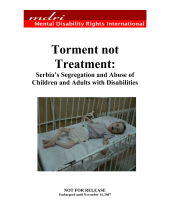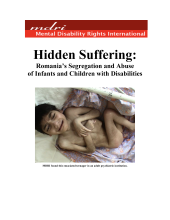Dragana Ciric Milovanovic, DRI-Serbia, speaks at UN on violence against women
Dragana Ciric Milovanovic, Director of DRI's European Regional Office, speaks at the United Nations in New York in commemoration of the International Day for the Elimination of Violence Against Women.




